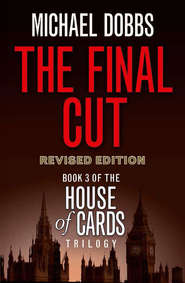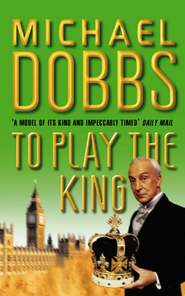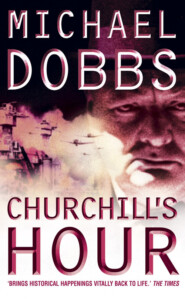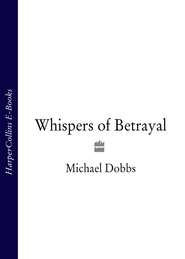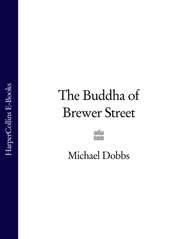По всем вопросам обращайтесь на: info@litportal.ru
(©) 2003-2024.
✖
Winston’s War
Настройки чтения
Размер шрифта
Высота строк
Поля
‘We live in a complicated world. I don’t suppose that cash you’ve got in your pocket was given to you by the BBC to pay for your haircut, was it?’
Burgess covered his alarm with laughter – God, but this one was sharp. ‘Would you believe it if I said I lived off my mother’s immoral earnings?’
‘We are all held hostage by our past.’
‘You’d like payment?’
Mac slowly shook his head. ‘No. You can buy me a drink when it suits you, but I won’t help you for money. I’ll do it because if Mr Chamberlain gets this wrong, a lot of people are going to die. People like me and Moniek. Not people like Mr Chamberlain.’
‘Who is Moniek?’
‘It is no longer of importance.’
‘Have another drink.’
McFadden shook his head once more. ‘No, thank you. It’s been a difficult week and – like you – I am a single man. I feel I need a little distraction. While such things are still allowed, eh? If you don’t mind, I think I’ll take a walk around the Market. See what’s happening.’
‘I’ll be in touch, McFadden. Thanks,’ Burgess offered as the other man slipped off his bar stool and limped away. He turned at the door.
‘You know something, Mr Burgess, at this rate you’re going to end up the best-groomed bugger in Britain.’
That evening on his way home, McFadden stopped by the entrance to the synagogue at the top of Kensington Park Road. He hadn’t entered a synagogue since he was a teenager, but now he hesitated, troubled by memories of Moniek, things he had hidden away for so many years. He put his hand on the door. He seemed almost relieved when he found it locked.
Churchill spoke in the debate on Munich – or European Affairs, as it was called in Hansard. He talked of shame, of a total and unmitigated defeat, of gross neglect and deficiencies, of his country being weighed in the balance and found wanting. He spoke magnificently, a guiding star for the rebels. They were few in number, about thirty, but of considerable standing, men of stature – like the former Foreign Secretary Anthony Eden, Duffie Cooper, Leo Amery, Bobbety Cranborne, Admiral of the Fleet Sir Roger Keyes, Macmillan, Boothby, Duncan Sandys, Harold Nicolson. As Nicolson recorded in his diary, ‘Our group decided that it is better for us all to abstain, than for some to abstain and some to vote against. We therefore sit in our seats, which must enrage the Government, since it is not our numbers that matter but our reputation.’
He was right. The Government was deeply enraged. Even as Chamberlain rose from his seat to acknowledge the wild acclamation from all sides, his mind was made up. The thirty or so rebels had become marked men, every one of them. The reputations which Nicolson talked of with such pride were about to be systematically besmirched.
FOUR (#ulink_f809d4e1-9bfa-5019-a0cd-c2f8e7b5256a)
Chamberlain. Chamberlain. Everywhere one went it was that name, Neville Chamberlain. No occasion seemed complete without his presence. His was the name on everyone’s lips. Hospital beds were being endowed in his name, the French had opened up a fund to provide him with ‘a corner of French soil’ in gratitude, while the photograph of him at the Palace adorned the mantelpieces of thousands of homes – The Times even offered copies to its readers as a souvenir Christmas card. So great had the public clamour grown that it was in danger of becoming compromising; Chamberlain felt compelled to issue a statement declining the Bishop of Coventry’s suggestion that a National Tribute Fund be set up in his honour. This was, after all, a democracy.
‘Has he arrived yet?’ There was no hint of impatience in the question posed by the Dowager Queen Mary – how could even the King’s mother be impatient with a man who was so busy saving the world? But they had missed him. They had gathered at Sandringham in the saloon, a fussy, crowded hall overburdened with family portraits, deer skulls and the paraphernalia of Victorians trying too hard to please. A large stuffed bear stood guard by the staircase. Queen Mary had settled into a chair by the fireplace, glass of sherry in hand, while two men stood by her side, waiting on her and in the process warming themselves by the roaring log fire. The first, Edward Halifax, the Foreign Secretary, was entirely at home in a royal household, for he occupied a position of personal privilege almost unique amongst politicians. He was an intimate friend of the King. They dined frequently and in private, and Halifax had been provided with a key to the gardens of Buckingham Palace so that he was able to walk through them every morning on his way to the Foreign Office. The King practised with his rifle in the gardens and would often waylay Halifax in order to share his views on matters of state, but most of all for the simple pleasure of his company. It could be lonely being an Emperor-King. George VI was relatively inexperienced, a monarch by mistake. He also suffered from a speech impediment so pronounced that his audience often couldn’t tell whether His Majesty had paused for thought or was simply stuck on a stutter. As a result, public appearances terrified him, and perhaps that was why he felt at ease in the company of Halifax, who also and so obviously carried with him the misfortunes of his narrow bloodline. The Viscount was exceptionally tall, dome-headed and gangling, slightly stooped, and born without a left hand. The sleeve on his Savile Row suit was filled with nothing more than a prosthesis, a rubber fist. ‘Armless Eddie’, as the wags called him. And, like the King, the Viscount also suffered from a tangling of the tongue – he was unable to pronounce his ‘r’s. So the two men walked, talked, stuttered and found support in each other’s company. Theirs had become an uncommon bond between uncommon men.
The other man warming himself by the fire was Joseph Kennedy. The Ambassador was, of course, as common as New England mud and had no right to feel at home in the inner sanctums of the British Royal Family, but he didn’t give a damn. Like a presumptuous wine he was le nouvel arrivé, acidic, impertinent but, in the view of Queen Mary, excellent value for money. He was irreverent, called her ‘Your Graciousness’, which brought her out in uncharacteristic smiles, and he shared many of her prejudices.
‘Is an American allowed to tell an English Queen she looks radiant tonight?’ Kennedy began.
‘I think on that matter we might stretch a point, don’t you think, Foreign Secretary?’
‘Undoubtedly, ma’am.’
A flunkey crept between them bearing a crystal decanter to refill Her Majesty’s glass. He was in full royal regalia, stockings, breeches, buckled shoes, ruffs. Kennedy wondered if there was any chance of his borrowing the outfit for Halloween.
‘You gentlemen enjoyed yourselves today, I trust.’
‘They flew low and slow. Just as I like ’em,’ replied the Ambassador who, for all his Wild West hokum, was a poor shot.
‘It has been a particularly happy day for us,’ Queen Mary announced, patting her thighs with pleasure. ‘While you gentlemen were out shooting for your supper I had tea with our nephew, Fritzi – Prince Friedrich of Prussia,’ the elderly dowager added for the American’s benefit. ‘Such a sweet boy. He brought me news and letters from Doorn.’
The American’s expression revealed a state of utter ignorance.
‘Doorn – in Holland,’ Halifax explained. ‘It’s where the Kaiser has his estates. He’s lived there in exile since the end of the war.’
‘He’s our cousin, you see, Ambassador. We were very close. You can imagine how difficult it’s been in recent days.’
Kennedy began to recall his State Department briefings. Family ties were important, sure, no argument from him on that score, but the bloodlines that bound the royal families of Germany and Britain together came close to a genetic noose. Britain had been ruled by Germans for the best part of two hundred years. Called themselves Hanoverians. Some had barely spoken English, all of them had married German wives. Even the dowager seated on the chair beside him was a princess of some place called Teck – and Hesse, and Wuerttemberg, too, come to that, and the exiled Kaiser – the war-mongering, bottom-pinching, mustachio-twirling Wilhelm – was a grandson of Victoria. The British Royal Family was almost Appalachian in its enthusiasm to disappear up its own roots.
‘It’s inconceivable, war once more. Between Britain and Germany. Cousin against cousin. Isn’t it, Ambassador?’ Queen Mary demanded.
‘Sure, totally inconceivable,’ he agreed – although such refined family sensitivities didn’t seem to have stopped them last time. When all was said and the dying done, the Great War had amounted to nothing more than one huge family sulk, King against Kaiser against Tsar – until the Americans arrived and banged their inbred heads together.
‘Think of the cost,’ she continued. ‘We couldn’t possibly afford it. And the Empire!’ For a moment it seemed as though she might swoon; red spots appeared upon her powdered cheeks. ‘It would spark unrest throughout the colonies, particularly in those awkward places like the Middle East and India.’ She turned on Halifax. ‘Edward, you know India, of course.’
Halifax stooped low, bowing his head in acknowledgement. He had been Viceroy of India until a few years previously.
‘They are … wonderful, yes, quite wonderful, the Indians,’ the dowager persisted. ‘But they do have a habit of taking advantage every time one’s back is turned.’
Her voice grew softer, more conspiratorial. ‘No, Herr Hitler may have his faults, but consider the alternative. Either Germany will dominate the continent, or it will fall to the Bolsheviks. And who would you prefer to take tea with, Ambassador? A German traditionalist who at least has the sense to do business with us, or a Bolshevik revolutionary who has one knife at your purse and the other at your throat?’
‘Foreign Secretary?’ Kennedy enquired, shuffling off the responsibility.
Halifax considered carefully. It was a complex question, one he had debated long and hard with his colleagues and his God. ‘I am no fan of Herr Hitler. He is a ferocious bully, a man with blood on his hands. And yet I see no reason why that blood should be British. On the other hand Bolshevism represents a threat to everything this country stands for.’ He began tapping the pocket of his dinner jacket with his prosthesis as if to check that his wallet hadn’t disappeared. ‘Look at the map, Ambassador. The most substantial obstacle standing in Stalin’s path is Germany. Without a strong Reich’ – the word emerged most wretchedly mangled – ‘there would be nothing to stop Stalin’s hordes sweeping through the continent until they stood at our own front door. Personally – and as an aristocrat I have to view such things personally – I take no pleasure in the prospect of being butchered simply because of what I was born. Begging your pardon, ma’am.’
Tiny shudders of sympathy ran through the Dowager Queen, causing the four strands of jewels in her necklace to sparkle. She had long been tormented by the fate of her cousin, the last Tsar, who had been murdered with his entire family in the cellar at Ekaterinburg, led down the steps, repeatedly shot, then finished off with bayonets. No, not a proper fate for a king. Her shuddering became more violent and she moved her hand to the folds of her throat.
Kennedy, meanwhile, was in excellent spirits. The seat of his trousers had been warmed thoroughly by the fire and the bourbon he was sipping was iced and excellent. It seemed an appropriate time for a little fun. ‘I agree with you, Foreign Secretary,’ Kennedy offered, picking up the thread of the conversation. ‘It’s a time when we all have to make choices. Tough choices.’ A malicious pause. ‘Pity no one seems to have told Mr Churchill that.’
The Queen reacted as though she had suddenly found a pin in the cushion of the chair. ‘That man!’ she gasped with an expression of pain.
Halifax began to clear his throat, loudly, diplomatically, trying to give the Queen the opportunity to withdraw, but she was in her own house and would have none of it. She was, after all, a woman who carried with her the reputation of being a notorious kleptomaniac, and hosts who invited her for dinner would instruct the servants to lock away the best silver in case she took a liking to a piece and stuffed it in her handbag. She was not a woman who had ever been unduly sensitive about other people’s feelings, and she had no intention of showing weakness now.
‘He crashes around like a bull who hasn’t been fed for a week,’ she persisted, treating herself to a huge sip of sherry. ‘Leaves wreckage everywhere he goes.’
‘Ma’am?’ Kennedy enquired, wanting more, bending low.
‘My apologies, Ambassador, but …’ For a moment it seemed she had shocked herself by her own indiscretion. Her face had gone pale beneath the powder, like snow-swept granite, and, taking Halifax’s hint, she looked for some means of escape. She peered blindly across the saloon. ‘Edward, who is that woman? The one dressed like a Parisian actress?’
‘Um, the lady by the staircase?’
‘The one whose necklace appears to be nudging her navel. They can’t be real, surely.’
‘The jewels, ma’am? Indeed they can. That is the wife of one of the King’s bankers.’
He offered the name and the Dowager Queen’s nostrils flared in distaste, as though someone had just thrown a horse-hair mattress on the fire. Not a guest who would have been invited in her day. This distraction wasn’t working. Anyway, she argued with herself, why should she be seeking distraction? She was old, and with age went all sorts of allowances to indulge her whims, to jump in puddles and rattle the railings and pinch the silver just as she wished. Her husband was dead, she was no longer on parade. Why should she hold back?
‘I had forgotten that you are so recently arrived in our country, Ambassador. But since you have expressed an interest in Mr Churchill, it would be rude of me not to advise you on the matter. You will soon get to know Mr Churchill’s record. An exceptional one, indeed.’ She paused for effect and for breath. ‘He has never been loyal to anyone other than himself. He changes parties and friendships whenever it suits him. None of our business, of course, but when he begins blundering into matters of the Crown, that is quite another thing. Oh, it pains me, Mr Kennedy, that my son Edward should have behaved so badly over the abdication. That was terrible enough for any family to bear. But Mr Churchill proved himself to be utterly outrageous. Talked of forming a King’s Party. Wanted Edward to stay on the throne and to turn the whole thing into a huge political row. Would have had That Woman as Queen!’
Her Royal Annoyance disappeared into her sherry, unable for the moment to continue, while Kennedy felt forced to stifle a smile in order to maintain the stern face of diplomacy. If only ‘That Woman’, Wallis Simpson, had been a sour-faced German dumpling, how much easier Edward’s path might have been …






